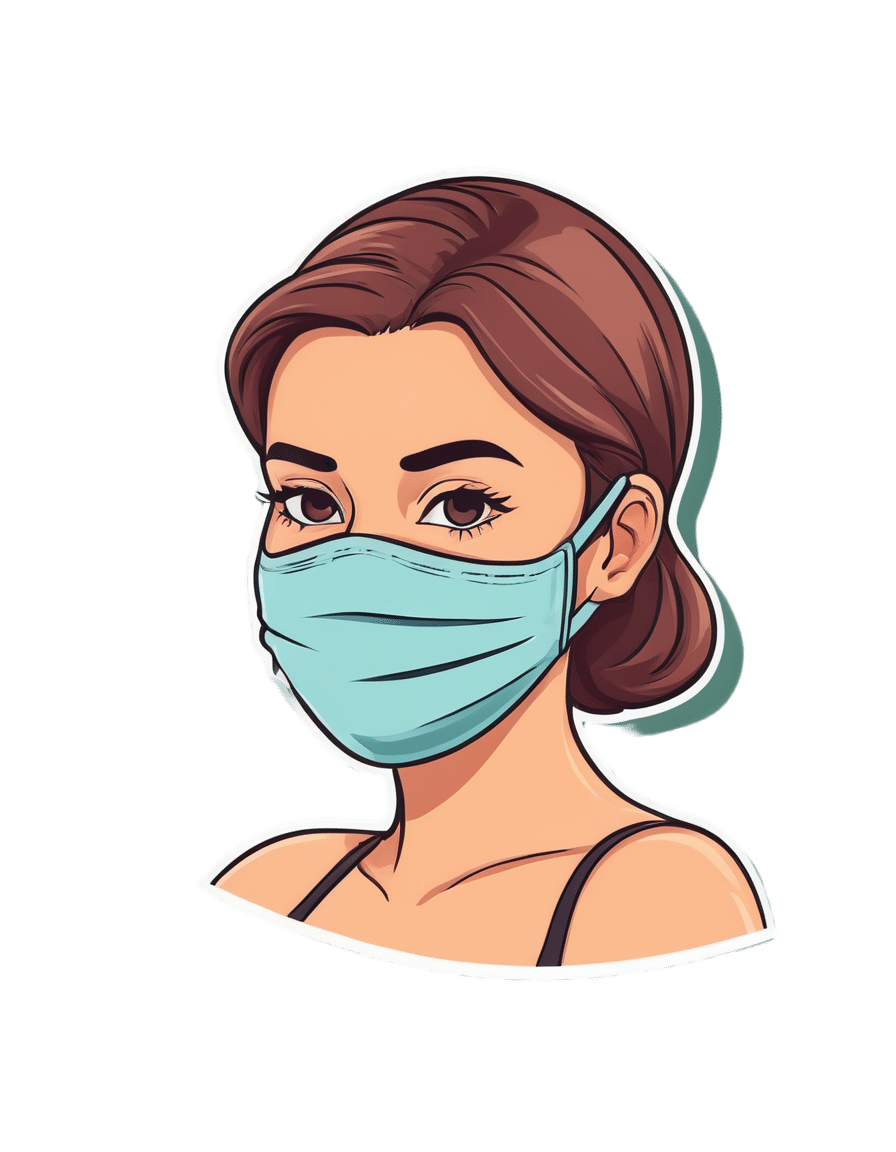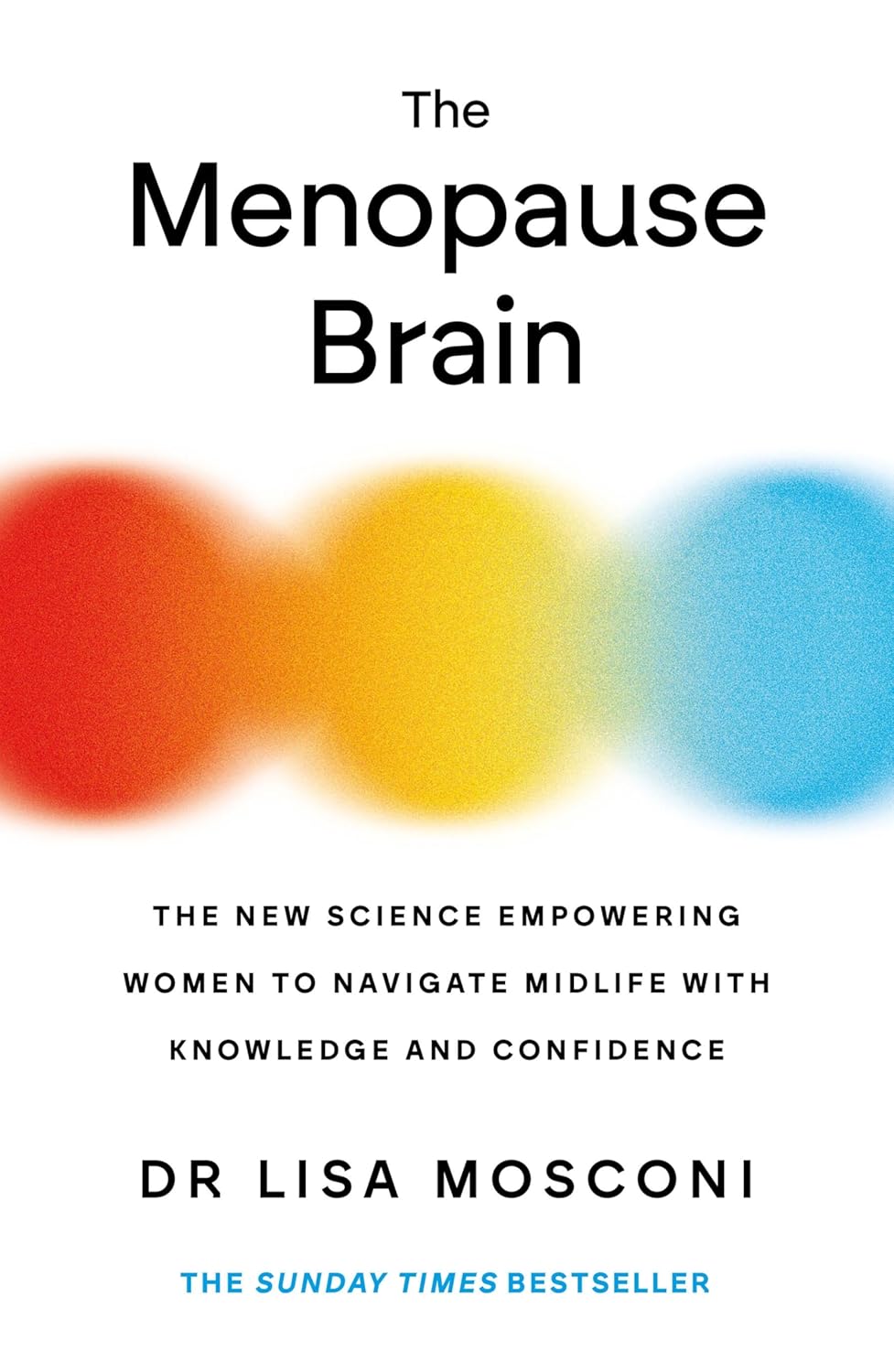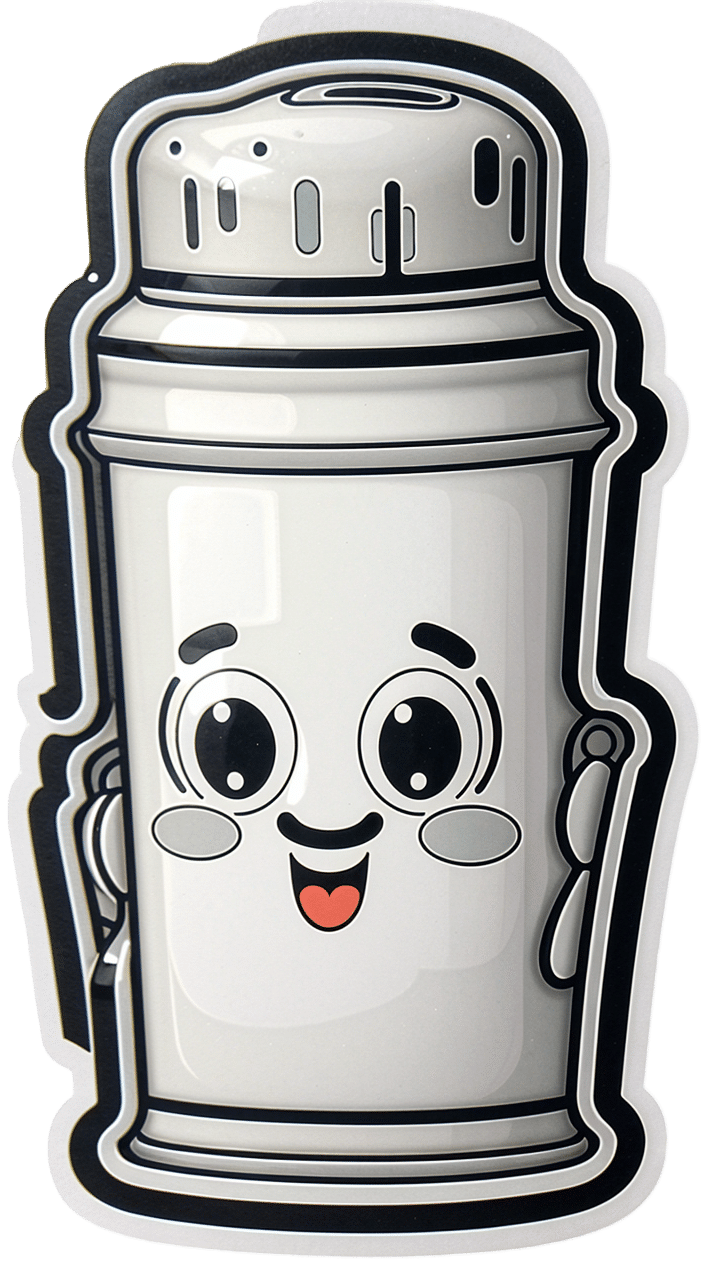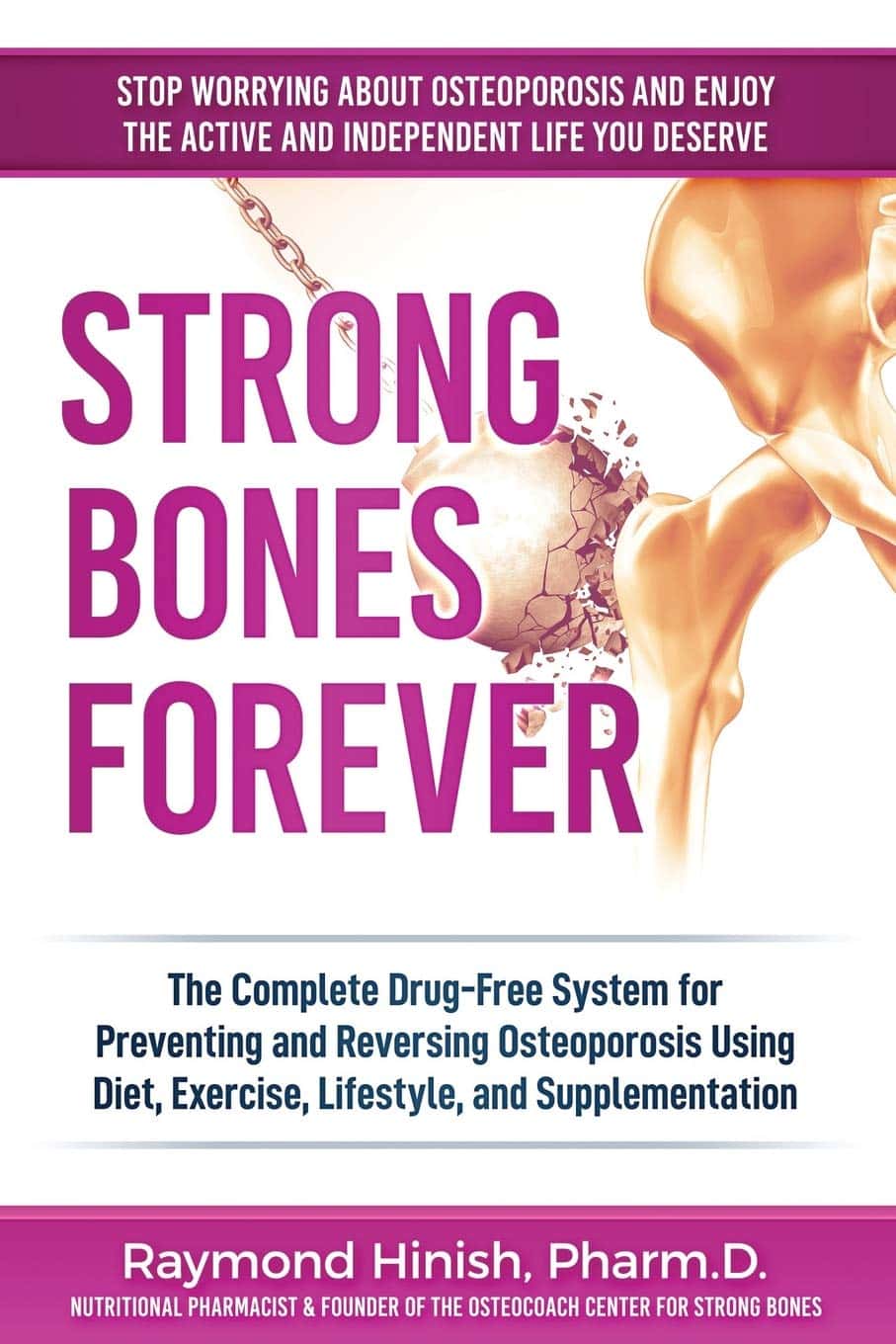
Support For Long COVID & Chronic Fatigue
10almonds is reader-supported. We may, at no cost to you, receive a portion of sales if you purchase a product through a link in this article.
Long COVID and Chronic Fatigue
Getting COVID-19 can be very physically draining, so it’s no surprise that getting Long COVID can (and usually does) result in chronic fatigue.
But, what does this mean and what can we do about it?
What makes Long COVID “long”
Long COVID is generally defined as COVID-19 whose symptoms last longer than 28 days, but in reality the symptoms not only tend to last for much longer than that, but also, they can be quite distinct.
Here’s a large (3,762 participants) study of Long COVID, which looked at 203 symptoms:
Characterizing long COVID in an international cohort: 7 months of symptoms and their impact
Three symptoms stood at out as most prevalent:
- Chronic fatigue (CFS)
- Cognitive dysfunction
- Post-exertional malaise (PEM)
The latter means “the symptoms get worse following physical or mental exertion”.
CFS, Chronic Fatigue Syndrome, is also called Myalgic Encephalomyelitis (ME).
What can be done about it?
The main “thing that people do about it” is to reduce their workload to what they can do, but this is not viable for everyone. Note that work doesn’t just mean “one’s profession”, but anything that requires physical or mental energy, including:
- Childcare
- Housework
- Errand-running
- Personal hygiene/maintenance
For many, this means having to get someone else to do the things—either with support of family and friends, or by hiring help. For many who don’t have those safety nets available, this means things simply not getting done.
That seems bleak; isn’t there anything more we can do?
Doctors’ recommendations are chiefly “wait it out and hope for the best”, which is not encouraging. Some people do recover from Long COVID; for others, it so far appears it might be lifelong. We just don’t know yet.
Doctors also recommend to journal, not for the usual mental health benefits, but because that is data collection. Patients who journal about their symptoms and then discuss those symptoms with their doctors, are contributing to the “big picture” of what Long COVID and its associated ME/CFS look like.
You may notice that that’s not so much saying what doctors can do for you, so much as what you can do for doctors (and in the big picture, eventually help them help people, which might include you).
So, is there any support for individuals with Long COVID ME/CFS?
Medically, no. Not that we could find.
However! Socially, there are grassroots support networks, that may be able to offer direct assistance, or at least point individuals to useful local resources.
Grassroots initiatives include Long COVID SOS and the Patient-Led Research Collaborative.
The patient-led organization Body Politic also used to have such a group, until it shut down due to lack of funding, but they do still have a good resource list:
Click here to check out the Body Politic resource list (it has eight more specific resources)
Stay strong!
Don’t Forget…
Did you arrive here from our newsletter? Don’t forget to return to the email to continue learning!
Recommended
Learn to Age Gracefully
Join the 98k+ American women taking control of their health & aging with our 100% free (and fun!) daily emails:
-
The Menopause Brain – by Dr. Lisa Mosconi
10almonds is reader-supported. We may, at no cost to you, receive a portion of sales if you purchase a product through a link in this article.
With her PhD in neuroscience and nuclear medicine (a branch of radiology, used for certain types of brain scans, amongst other purposes), whereas many authors will mention “brain fog” as a symptom of menopause, Dr. Mosconi can (and will) point to a shadowy patch on a brain scan and say “that’s the brain fog, there”.
And so on for many other symptoms of menopause that are commonly dismissed as “all in your head”, notwithstanding that “in your head” is the worst place for a problem to be. You keep almost your entire self in there!
Dr. Mosconi covers how hormones influence not just our moods in a superficial way, but also change the structure of our brain over time.
Importantly, she also gives an outline of how to stay on the ball; what things to watch out for when your doctor probably won’t, and what things to ask for when your doctor probably won’t suggest them.
Bottom line: if menopause is a thing in your life (or honestly, even if it isn’t but you are running on estrogen rather than testosterone), then this is a book for you.
Click here to check out The Menopause Brain, and look after yours!
Share This Post
-
The Easiest Way To Take Up Journaling
10almonds is reader-supported. We may, at no cost to you, receive a portion of sales if you purchase a product through a link in this article.
Dear Diary…
It’s well-established that journaling is generally good for mental health. It’s not a magical panacea, as evidenced by The Diaries of Franz Kafka for example (that man was not in good mental health). But for most of us, putting our thoughts and feelings down on paper (or the digital equivalent) is a good step for tidying our mind.
And as it can be said: mental health is also just health.
But…
What to write about?
It’s about self-expression (even if only you will read it), and…
❝Writing about traumatic, stressful or emotional events has been found to result in improvements in both physical and psychological health, in non-clinical and clinical populations.
In the expressive writing paradigm, participants are asked to write about such events for 15–20 minutes on 3–5 occasions.
Those who do so generally have significantly better physical and psychological outcomes compared with those who write about neutral topics.❞
Source: Emotional and physical health benefits of expressive writing
In other words, write about whatever moves you.
Working from prompts
If you read the advice above and thought “but I don’t know what moves me”, then fear not. It’s perfectly respectable to work from prompts, such as:
- What last made you cry?
- What last made you laugh?
- What was a recent meaningful moment with family?
- What is a serious mistake that you made and learned from?
- If you could be remembered for just one thing, what would you want it to be?
In fact, sometimes working from prompts has extra benefits, precisely because it challenges us to examine things we might not otherwise think about.
If a prompt asks “What tends to bring you most joy recently?” and the question stumps you, then a) you now are prompted to look at what you can change to find more joy b) you probably wouldn’t have thought of this question—most depressed people don’t, and if you cannot remember recent joy, then well, we’re not here to diagnose, but let’s just say that’s a symptom.
A quick aside: if you or a loved oneare prone to depressive episodes, here’s a good resource, by the way:
The Mental Health First-Aid That You’ll Hopefully Never Need
And in the event of the mental health worst case scenario:
The six prompts we gave earlier are just ideas that came to this writer’s mind, but they’re (ok, some bias here) very good ones. If you’d like more though, here’s a good resource:
550+ Journal Prompts: The Ultimate List
The Good, The Bad, and The Ugly
While it’s not good to get stuck in ruminative negative thought spirals, it is good to have a safe outlet to express one’s negative thoughts/feelings:
Remember, your journal is (or ideally, should be) a place without censure. If you fear social consequences should your journal be read, then using an app with a good security policy and encryption options can be a good idea for journaling
Finch App is a good free option if it’s not too cutesy for your taste, because in terms of security:
- It can’t leak your data because your data never leaves your phone (unless you manually back up your data and then you choose to put it somewhere unsafe)
- It has an option to require passcode/biometrics etc to open the app
As a bonus, it also has very many optional journaling prompts, and also (optional) behavioral activation prompts, amongst more other offerings that we don’t have room to list here.
Take care!
Share This Post
-
More Salt, Not Less?
10almonds is reader-supported. We may, at no cost to you, receive a portion of sales if you purchase a product through a link in this article.
It’s Q&A Day at 10almonds!
Have a question or a request? We love to hear from you!
In cases where we’ve already covered something, we might link to what we wrote before, but will always be happy to revisit any of our topics again in the future too—there’s always more to say!
As ever: if the question/request can be answered briefly, we’ll do it here in our Q&A Thursday edition. If not, we’ll make a main feature of it shortly afterwards!
So, no question/request too big or small
❝I’m curious about the salt part – learning about LMNT and what they say about us needing more salt than what’s recommended by the government, would you mind looking into that? From a personal experience, I definitely noticed a massive positive difference during my 3-5 day water fasts when I added salt to my water compared to when I just drank water. So I’m curious what the actual range for salt intake is that we should be aiming for.❞
That’s a fascinating question, and we’ll have to tackle it in several parts:
When fasting
3–5 days is a long time to take only water; we’re sure you know most people fast from food for much less time than that. Nevertheless, when fasting, the body needs more water than usual—because of the increase in metabolism due to freeing up bodily resources for cellular maintenance. Water is necessary when replacing cells (most of which are mostly water, by mass), and for ferrying nutrients around the body—as well as escorting unwanted substances out of the body.
Normally, the body’s natural osmoregulatory process handles this, balancing water with salts of various kinds, to maintain homeostasis.
However, it can only do that if it has the requisite parts (e.g. water and salts), and if you’re fasting from food, you’re not replenishing lost salts unless you supplement.
Normally, monitoring our salt intake can be a bit of a guessing game, but when fasting for an entire day, it’s clear how much salt we consumed in our food that day: zero
So, taking the recommended amount of sodium, which varies but is usually in the 1200–1500mg range (low end if over aged 70+; high end if aged under 50), becomes sensible.
More detail: How Much Sodium You Need Per Day
See also, on a related note:
When To Take Electrolytes (And When We Shouldn’t!)
When not fasting
Our readers here are probably not “the average person” (since we have a very health-conscious subscriber-base), but the average person in N. America consumes about 9g of salt per day, which is several multiples of the maximum recommended safe amount.
The WHO recommends no more than 5g per day, and the AHA recommends no more than 2.3g per day, and that we should aim for 1.5g per day (this is, you’ll note, consistent with the previous “1200–1500mg range”).
Read more: Massive efforts needed to reduce salt intake and protect lives
Questionable claims
We can’t speak for LMNT (and indeed, had to look them up to discover they are an electrolytes supplement brand), but we can say that sometimes there are articles about such things as “The doctor who says we should eat more salt, not less”, and that’s usually about Dr. James DiNicolantonio, a doctor of pharmacy, who wrote a book that, because of this question today, we’ve now also reviewed:
Spoiler, our review was not favorable.
The body knows
Our kidneys (unless they are diseased or missing) do a full-time job of getting rid of excess things from our blood, and dumping them into one’s urine.
That includes excess sugar (which is how diabetes was originally diagnosed) and excess salt. In both cases, they can only process so much, but they do their best.
Dr. DiNicolantino recognizes this in his book, but chalks it up to “if we do take too much salt, we’ll just pass it in urine, so no big deal”.
Unfortunately, this assumes that our kidneys have infinite operating capacity, and they’re good, but they’re not that good. They can only filter so much per hour (it’s about 1 liter of fluids). Remember we have about 5 liters of blood, consume 2–3 liters of water per day, and depending on our diet, several more liters of water in food (easy to consume several more liters of water in food if one eats fruit, let alone soups and stews etc), and when things arrive in our body, the body gets to work on them right away, because it doesn’t know how much time it’s going to have to get it done, before the next intake comes.
It is reasonable to believe that if we needed 8–10g of salt per day, as Dr. DiNicolantonio claims, our kidneys would not start dumping once we hit much, much lower levels in our blood (lower even than the daily recommended intake, because not all of the salt in our body is in our blood, obviously).
See also: How Too Much Salt Can Lead To Organ Failure
Lastly, a note about high blood pressure
This is one where the “salt’s not the bad guy” crowd have at least something close to a point, because while salt is indeed still a bad guy (if taken above the recommended amounts, without good medical reason), when it comes to high blood pressure specifically, it’s not the worst bad guy, nor is it even in the top 5:
Hypertension: Factors Far More Relevant Than Salt
Thanks for writing in with such an interesting question!
Share This Post
Related Posts
-
Insights into Osteoporosis
10almonds is reader-supported. We may, at no cost to you, receive a portion of sales if you purchase a product through a link in this article.
It’s Q&A Day at 10almonds!
Have a question or a request? You can always hit “reply” to any of our emails, or use the feedback widget at the bottom!
In cases where we’ve already covered something, we might link to what we wrote before, but will always be happy to revisit any of our topics again in the future too—there’s always more to say!
As ever: if the question/request can be answered briefly, we’ll do it here in our Q&A Thursday edition. If not, we’ll make a main feature of it shortly afterwards!
So, no question/request too big or small
❝I would like to see some articles on osteoporosis❞
You might enjoy this mythbusting main feature we did a few weeks ago!
Don’t Forget…
Did you arrive here from our newsletter? Don’t forget to return to the email to continue learning!
Learn to Age Gracefully
Join the 98k+ American women taking control of their health & aging with our 100% free (and fun!) daily emails:
-
Strong Bones Forever − by Dr. Raymond Hinish
10almonds is reader-supported. We may, at no cost to you, receive a portion of sales if you purchase a product through a link in this article.
This doctor of pharmacy would like for fewer people to take (or need to take) osteoporosis medications. Indeed, as the subtitle suggests, the focus here is on drug-free solutions.
And not just because “natural is better” as an argument without evidence, rather, he talks about the limitations and drawbacks of osteoporosis medications (which we wrote about previously, but he has more room to go into more detail), whereupon some osteoporosis meds may do more harm than good.
His method boasts improvements in bone density by 11% or more in two years, and covers such topics as:
- which calcium (and why no, dairy is not what you want; it contains things that inhibit calcium absorption, so the calcium will be stuck in your arteries instead of your bones)
- which minerals are more important than calcium, and why
- common mistakes that many people make that sabotage their bone density
It’s about more than just diet though; he does also talk about hormones, and not just other lifestyle factors, but also many “industry secrets” that aren’t really secrets per se, it’s just, people outside of the industry don’t usually know them—pertaining to things like how to get the most out of bone density tests (i.e. how to get better accuracy), how to meaningfully assess fracture risk, and, if choosing to take osteoporosis meds, how to minimize the risks and maximize the benefits.
The style is very direct and informational, very easy to read, remarkably jargon-free, and our only criticism is that there is no bibliography.
Bottom line: if you’d like to improve your bone density, this book can certainly help with that.
Click here to check out Strong Bones Forever, and have strong bones forever!
Don’t Forget…
Did you arrive here from our newsletter? Don’t forget to return to the email to continue learning!
Learn to Age Gracefully
Join the 98k+ American women taking control of their health & aging with our 100% free (and fun!) daily emails:
-
Is it OK to lie to someone with dementia?
10almonds is reader-supported. We may, at no cost to you, receive a portion of sales if you purchase a product through a link in this article.
There was disagreement on social media recently after a story was published about an aged care provider creating “fake-away” burgers that mimicked those from a fast-food chain, to a resident living with dementia. The man had such strict food preferences he was refusing to eat anything at meals except a burger from the franchise. This dementia symptom risks malnutrition and social isolation.
But critics of the fake burger approach labelled it trickery and deception of a vulnerable person with cognitive impairment.
Dementia is an illness that progressively robs us of memories. Although it has many forms, it is typical for short-term recall – the memory of something that happened in recent hours or days – to be lost first. As the illness progresses, people may come to increasingly “live in the past”, as distant recall gradually becomes the only memories accessible to the person. So a person in the middle or later stages of the disease may relate to the world as it once was, not how it is today.
This can make ethical care very challenging.
Pikselstock/Shutterstock Is it wrong to lie?
Ethical approaches classically hold that specific actions are moral certainties, regardless of the consequences. In line with this moral absolutism, it is always wrong to lie.
But this ethical approach would require an elderly woman with dementia who continually approaches care staff looking for their long-deceased spouse to be informed their husband has passed – the objective truth.
Distress is the likely outcome, possibly accompanied by behavioural disturbance that could endanger the person or others. The person’s memory has regressed to a point earlier in their life, when their partner was still alive. To inform such a person of the death of their spouse, however gently, is to traumatise them.
And with the memory of what they have just been told likely to quickly fade, and the questioning may resume soon after. If the truth is offered again, the cycle of re-traumatisation continues.
People with dementia may lose short term memories and rely on the past for a sense of the world. Bonsales/Shutterstock A different approach
Most laws are examples of absolutist ethics. One must obey the law at all times. Driving above the speed limit is likely to result in punishment regardless of whether one is in a hurry to pick their child up from kindergarten or not.
Pragmatic ethics rejects the notion certain acts are always morally right or wrong. Instead, acts are evaluated in terms of their “usefulness” and social benefit, humanity, compassion or intent.
The Aged Care Act is a set of laws intended to guide the actions of aged care providers. It says, for example, psychotropic drugs (medications that affect mind and mood) should be the “last resort” in managing the behaviours and psychological symptoms of dementia.
Instead, “best practice” involves preventing behaviour before it occurs. If one can reasonably foresee a caregiver action is likely to result in behavioural disturbance, it flies in the face of best practice.
What to say when you can’t avoid a lie?
What then, becomes the best response when approached by the lady looking for her husband?
Gentle inquiries may help uncover an underlying emotional need, and point caregivers in the right direction to meet that need. Perhaps she is feeling lonely or anxious and has become focused on her husband’s whereabouts? A skilled caregiver might tailor their response, connect with her, perhaps reminisce, and providing a sense of comfort in the process.
This approach aligns with Dementia Australia guidance that carers or loved ones can use four prompts in such scenarios:
- acknowledge concern (“I can tell you’d like him to be here.”)
- suggest an alternative (“He can’t visit right now.”)
- provide reassurance (“I’m here and lots of people care about you.”)
- redirect focus (“Perhaps a walk outside or a cup of tea?”)
These things may or may not work. So, in the face of repeated questions and escalating distress, a mistruth, such as “Don’t worry, he’ll be back soon,” may be the most humane response in the circumstances.
Different realities
It is often said you can never win an argument with a person living with dementia. A lot of time, different realities are being discussed.
So, providing someone who has dementia with a “pretend” burger may well satisfy their preferences, bring joy, mitigate the risk of malnutrition, improve social engagement, and prevent a behavioural disturbance without the use of medication. This seems like the correct approach in ethical terms. On occasion, the end justifies the means.
Steve Macfarlane, Head of Clinical Services, Dementia Support Australia, & Associate Professor of Psychiatry, Monash University
This article is republished from The Conversation under a Creative Commons license. Read the original article.
Don’t Forget…
Did you arrive here from our newsletter? Don’t forget to return to the email to continue learning!
Learn to Age Gracefully
Join the 98k+ American women taking control of their health & aging with our 100% free (and fun!) daily emails:









